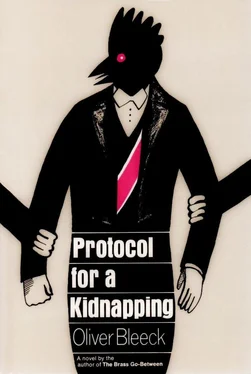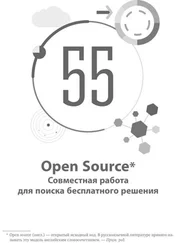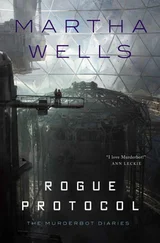The women seemed to wear anything that came along although Arrie’s long suede coat got a couple of admiring glances. With the veil still banished, the Muslim women drew their kerchiefs across their mouths. Some wore what looked to be pants suits, but weren’t, and others of the Muslim faith wore bloomers to make sure, the story had it, that no baby who just might be a descendant of the Prophet would touch soil at his birth.
It was a noisy section, flavored by the Orient as well as the West, and nobody seemed to be much concerned with The Reform. They were there to do business with anyone who came by and if it took six cups of coffee to make a deal, that too was Allah’s will.
We turned left at a narrow street that had no name, then right on to Asćiluk, and then left to the main road, Vojvode Stepe Obala.
“It is the bridge across the way that is named for the hero, Gavrilo Princip,” Tavro said mournfully.
“Is that where he shot the archduke?” Wisdom said.
“No,” Tavro said, “it is near here where we stand.”
“What about a café or a restaurant?” I said.
“There is one called the Dva Ribara,” he said. “It is not far.”
“Let’s try it,” I said. It seemed to be the first real decision that I’d made all day.
It wasn’t much of a restaurant, but it offered food, and Henry Knight and I, alone at the table, studied the menus as best we could. Knight folded his and put it down.
“I’ll let someone else order for me,” he said.
“What about a drink?”
“I can order that myself.”
We tried the plum brandy again. Knight fooled with the stem of his glass, moving it in small loops around the table. “Have you come up with any conclusions?” he said.
“About the radio story?”
“Yes.”
“None.”
“What about the kidnappers?” he said.
“You mean will it have scared them off?”
“That occurred to me.”
“And me. It was probably meant to.”
“Could that embassy guy have made a mistake?”
“You mean an honest one?” I said.
“Any kind.”
“It depends on what kind of shape the body was in. Stepinac did resemble me and there could have been some problem about identification. But I don’t think that there was.”
“But you can’t guess why?”
“I can guess,” I said.
“So can I,” he said.
“What’s yours?”
“It’s not a guess really. It’s just that somebody wants you dead for a little while. So it’s really not guessing about why but about who.”
“I can think of several who’s,” I said.
“Anybody I know?” Knight said.
“I’m not sure.”
The table talk was less than brilliant. Tavro appeared to have sunk into one of his despondent moods and spoke only when someone asked him a question, and that wasn’t often. Gordana, still looking lovely, seemed to have lost her appetite, but it may have been the food which she pushed politely back and forth across her plate. Arrie appeared thoughtful. She ate her meal quickly and then sat back, silently smoking a cigarette. Wisdom was still driving the car and his movements were tense and his speech was nervous chatter to which no one much listened, not even himself. Knight was the most relaxed, but then he was an actor and I couldn’t tell how he really felt. I felt rotten.
The meal dragged on, prolonged by the indifference of the waiters who showed up at odd times, looking as if they’d rather debate management policy than serve the coffee. The restaurant filled up slowly and I called for the check at a quarter after eight and it arrived at eight thirty which I thought was reasonable haste. I showed my appreciation with a ten percent tip.
We crossed the river near Sarajevo’s municipal museum and started through the Gypsy quarter of Dajanil Osmanbeg. It was a steep winding street, almost too narrow for a car. Small, evil-looking alleys led from the street and seemed to disappear into nothing.
“There is another way,” Tavro said, “but this is quicker.”
“So is a taxi,” I said.
We followed him through the street that wound through Bistrik which might have been a suburb of Sarajevo at one time, but now was a collection of shacks and wooden houses that tilted crazily at each other. It was a Muslim district with a sprinkling of miniature mosques and minarets built of wood. The Gypsies were short and swarthy, as most Gypsies are, and they talked to each other in what Arrie claimed to be Tamil. Kids were everywhere, but they were outnumbered by the cats, lean, tough, Gypsy-looking cats that prowled the alleys or sat in doorways and stared up at us with the knowing eyes that a Gypsy cat would have.
“The Prophet was terribly keen on cats, you know,” Wisdom said as we stumbled over a couple of kittens who pranced around spitting fiercely and arching their backs and puffing up their tails only to forget what they were mad about in the next second.
“I didn’t,” I said.
“You can see the mark of His hand on their heads,” Wisdom went on.
“Truly,” I said.
“There is a legend.”
“Ah.”
“Mohammed cut off a piece of his robe rather than disturb the cat who was sleeping on it.”
“There must have been an easier way,” I said.
“Then there would have been no legend.”
I looked back several times, but if we were being followed, I couldn’t spot the tail in the dim streets. If there were more than one, they could have been ducking in and out of a score of dark alleys and doorways. I didn’t feel as if I were being followed, but then I never did which must indicate a low level of paranoia if nothing else.
“Left at the next street,” Tavro said and we turned out of the quarter and onto a wider thoroughfare that commemorated the Sixth Day of November which, Tavro informed me, was a state holiday whose occasion he couldn’t recall. It was his only failure as a guide thus far and I think it upset him a little.
“The train station is left at the next corner,” he said and I turned to inspect the group which I reluctantly was beginning to think of as a brood. Wisdom was with Gordana and Knight was with Arrie.
“This is a dead-end street,” I said. “The train station is about a block up. This time I’ll go by myself. If I’m not back in ten minutes, I suggest that you check in with Traveler’s Aid.”
“It’s cold here,” Arrie said.
“Thank you for your cooperation,” I said, turned and walked toward the station. I looked back twice at the five of them who huddled at the corner in a disconsolate group, looking something like a Salvation Army band that had lost its instruments.
The station was nearly empty except for a couple of Gypsies who were more interested in the tile stove than the next train and a shaggy-haired man in his thirties who wore a long, sheepskin-lined shepherd’s coat, a fur hat, and scuffed leather boots. He looked at me and I looked at him. Then I looked at my watch and wandered over to examine the train schedule.
“You figure on catching a train?” a voice said and I turned. It was the shaggy-haired man.
“I hadn’t thought of it,” I said. He needed a shave and maybe a bath, but he probably knew it as well as I did.
“The radio said you were dead. Hit-and-run.”
“Then what’re you doing here?”
“We took a chance.”
“How’s Killingsworth?”
“You ever spend a week with him?”
“No.”
“Don’t,” he said and looked around the station carefully. “You weren’t followed?”
“None that I could spot.”
He was a little shorter than I with dark brown eyes and quick, nervous movements. His hands made rapid, fluent gestures.
“You’re the Italian,” I said.
He nodded. “My partner’s staying with Killingsworth. Where’re the rest of them?”
Читать дальше












